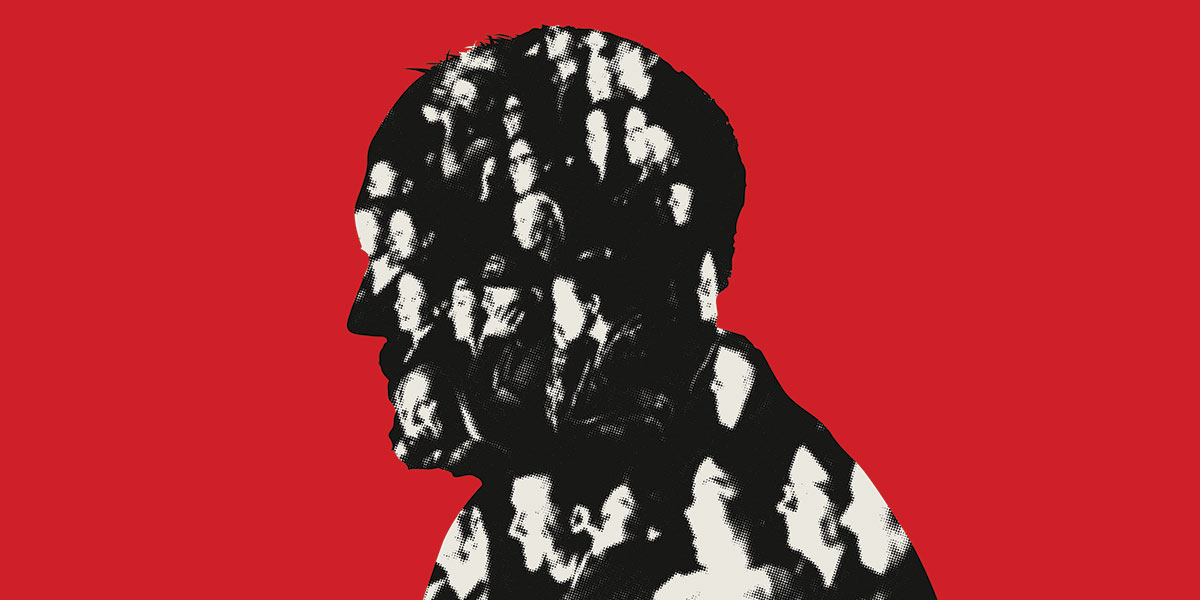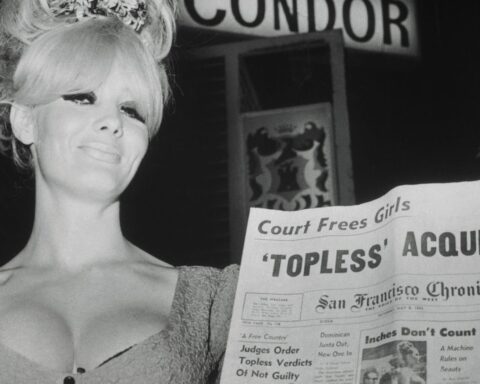Sorry/Not Sorry
(USA, 90 min.)
Dir. Caroline Suh, Cara Mones
Programme: TIFF Docs (World Premiere)
The entertainment world’s sexual abusers, of whom there are certainly many, must love Harvey Weinstein. Because, unless you’re moviedom’s most powerful mogul and you rape women in your hotel room, you can get away with anything. That’s the message of Sorry/Not Sorry, which shows how for decades the priapic comedian Louis C.K. harassed and masturbated in front of women who never consented. He not only got away with it, after a nine-month work hiatus, he came back big-time, playing Madison Square Gardens to rapturous fans and winning a Grammy for best comedy album in 2022.
He’s a complicated figure precisely because he became famous for jokes that took direct aim at the ways in which men are dangerous to women. His own obsession with masturbation was a constant theme and he was celebrated–even called a genius–for being brutally honest.
But rumours of the beloved comic’s tendency to whip out his penis and masturbate–he did it at parties and during meetings with women—had been surfacing for years. A major player in Sorry/Not Sorry is the very smart Jen Kirkland, one of many female comics whose careers were derailed thanks to C.K.’s behaviour. She met C.K.in the early Oughts and endured constant harassment before realizing she could never work with him without sexual repercussions. Kirkland is the most articulate in explaining the extent to which C.K.’s behaviours were well known. His colleagues could not have cared less or feigned ignorance.
It wasn’t until, in 2017, when New York Times writers Melena Ryzik, Cara Buckley and Jodi Kantner published a story alleging that C.K. had abused five women, that the truth was out in the open. As Kanter says, “There was no factual dispute.” C.K.’s response to the charges? “Yes, I did those things.” The response from other comics and his fans? So what? If it happened in any other work situation, say with a bank manager, that would not be the response of the customers or Human Resources.
Directors Suh and Mones talked to female comics whose encounters with C.K. included pestering for sex and his standard question, “Do you mind if I pull out my penis?” Most of these women were stunned by his behaviour and, like many who become paralyzed in those situations, did not react quickly. Dana Goodman and Julia Wolov, as many women do, froze when C.K. flashed them in a hotel room and started taking off his clothes.
So, not surprisingly in a genre where performers are given more slack than other entertainers, the victims got trashed by the likes of Bill Maher and others. “Leave,” said many C.K. supporters of Goodman and Wolov, successful comedy writers in Chicago whose career wound up never taking off. In his act, Dave Chappelle, laughed off Abby Schachner’s experience of having a phone meeting with a masturbating C.K., saying, “Uh, hang up the phone.” This was a call between a comedy icon with enormous power and a woman desperate for work. Megan Koester stayed silent for years because C.K.’s influential agent Dave Becky told her not to talk and she feared that, unless she complied, she’d never work again.
The doc’s title refers to the fact that C.K. never apologized. Comedian Wesley Morris, one of the precious few men in the comedy business critical of him, makes this claim strongly. Nine months after he stepped away from the scene, he mounted his comeback comedy show “Sorry” and elicited roars of approval for his blithe comment “I love jerking off, I just don’t like doing it alone.” Not exactly repentant. In the same set, he made the claim that the women had consented to his masturbatory performance. Not true, declares Kirkland. Then came the Madison Square Garden’s appearance and, weirdly, from an organization showing increasing concern about sexism, racism, homophobia, a Grammy award for his album “Sincerely, Louis C.K.”
A section of the doc on C.K.’s Woody Allen-esque film I Love You, Daddy, about a 60-something’s relationship with a 17-year-old, recounts how, after the Times article came out, the movie never lost its distributor and was cancelled after premiering at the 2017 edition of TIFF. Such events invoke hysterical fears of so-called cancel culture. Cancelled? As fiery comic Aida Rodriguez puts it, who’s worrying about the many talented female comics whose entire careers, thanks to C.K., were cancelled?
Louis C.K., on the other hand, is doing just fine.
Sorry/Not Sorry screened at TIFF 2023.
Get more coverage from this year’s festival here.













